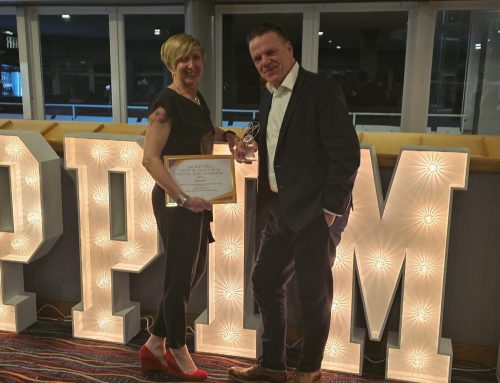Hi. I’m back with (I’m sure) the highly anticipated part B of my musings about dementia. As promised below is a transcript of my interview with a person living with a parent with dementia. I hope you enjoy the read and even better if it changes the way you might view those with and those dealing with dementia, as it has done for me….oh and we also get to find out what happened with the “rough handling” incident…
Interview
Q: What would you want others to know about dementia?
A: That the person isn’t lost just because they have dementia. People think that because a person has dementia they are lost. That’s wrong…in essence they are the same person, it’s just they don’t function in quite the same way. Longer term they may be a different person, but when first diagnosed, they ARE the same.
Q: How do you see dementia?
A: I understand dementia as usually a gradual loss of memory and brain processing which over time can change personalities and behaviours.
Q: What’s it like living with/caring for a parent with dementia?
A: I feel I have to take responsibility for the person, not just the person but all of their life, e.g. finances, their relationships with other people, their home. It’s a fine balance doing that without robbing the other person of their independence and sense of self.
Me: Does that feel like a burden?
I don’t tend to think about how I feel, I just get on with it, there’s no alternative really is there?
Q: What’s the biggest impact on you and on your family?
A: On me, I’m forever juggling how to do the best for her. It takes a lot of time because you’re basically running two lives and liaising with everyone she’s involved with e.g. family, professionals, friends etc. I’m fortunate that I don’t have to work alongside this, but I’m additionally living with a long-term illness, so it can occasionally affect my capacity to function.
On my family; my sisters grieve for the loss of the person that my mother was. I think that’s because they don’t see her as the person she was. Any decisions we now make have to be decisions ‘by committee’ and have to be put past anyone who has a vested interest. This bit is frustrating as people disagree and this causes resentment. I think my siblings resent my input as I hold the legal capacity to act in my mum’s name. I’m the person making decisions and so I’m seen as “she who must be obeyed”.
Me: How do you deal with that? Initially I did my best to appease them, but this made things worse. Now I give them the information, the facts, not opinions and try to ignore any resentment.
Q: What changes would you like to see in respect to how dementia is understood?
A: On a societal level – I think there needs to be more education about what people with dementia can do…yes we need to know what the end will be like…but the initial emphasis needs to be that the person with dementia CAN do things and DOES have independence. Primarily, they need support for the areas that their brain doesn’t process, not support for EVERYTHING. In the moment, they can do everything, they just need support to keep those things on track; prompts and reminders that keep them on track e.g. an alarm or memory aid. On a non-tech level labels etc.
Q: What changes to support would you like to see from healthcare professionals?
A: One of the biggest problems is the waiting list. An initial referral can take months before someone comes out to do an assessment. Often all people need is advice and equipment and signposting and this can make ALL the difference in the early stages. But because access takes so long, by the time they come to do the assessment, people can have progressed to the next stage of the disease or gone into crisis and then the focus becomes crisis management rather than supportive intervention. Earlier help and support would make a huge difference.
Q: I’m a cognitive behavioural therapist working with mental health problems. What do you think I may need to consider and/or offer in terms of mental health support?
A: With dementia, there is often anxiety, panic, depression and a loss of confidence. This is because the person has insight into their condition and is aware of how other people react to them. Their inability to complete simple everyday tasks without struggling causes them emotional distress. So I think they would benefit from support to manage their reactions to these things without having to resort to medication. My mum has been offered coffee morning groups but to my knowledge, never offered support directly related to mental health. I think people with dementia should be offered the option of group or individual therapy alongside the practical aids.
Q: Is there anything else you think people should know?
A: People need to make the most of what they’ve got rather than see it as a terrible thing…it IS terrible, but I think the average time until death after diagnosis is about 10 years , so you don’t want to be spending 10 years thinking and acting as if things are terrible. Even if the person tells you they would prefer to be dead before they become really bad, it’s always about trying to make their quality of life better for as long as they are around.
Me: Thanks for that, that’s helped me to understand things a lot more. Before I let you go, can I ask what happened with the carer and the allegation?
A: Sure. Mum said she didn’t like the carer but couldn’t specify why. She was able to be very descriptive about being pulled or tugged on several occasions and gave lots of details, but she couldn’t say when or how many times or anything further. Witness statements were taken from individuals including me, other family members, the carer, other clients being cared for by the same carer, but at the end of the day, its one word against another’s. The agencies have to take all the evidence into account and go on the likelihood of it happening and it was determined to be unlikely. This doesn’t mean mum didn’t believe she experienced those things, it just wasn’t found to be likely. The problem is her memory is unreliable so she remembers emotively. She knew that she didn’t like being with the carer but couldn’t remember why.
Q: Were you satisfied with this?
A: Well yes. I think the agency did all they could. They did say some biased statements in the beginning about it being unlikely the carer would do that, which I thought they shouldn’t have said, but I also know my mum spins tales and always has done, so this had to be considered. All in all I think the right thing was done. None of us will ever know what really went on but mum is satisfied with the result that the carer won’t be returning and that’s good enough for me. People with dementia are very vulnerable in that respect and tend to respond more emotively. The only option is to put up CCTV which we don’t want to do at this stage.
End of Interview
So there you have it. Was that enough of an investigation? Should there be other measures in place? Should we be investigating the level and ease of access dementia sufferers have to mental health support? Would the input from a mental health professional have been a useful addition to throw into the pot when considering the allegation? Perhaps.
Hopefully this has given you some food for thought about dementia and those living with it. First blog over, thank for reading…maybe see you again!”





